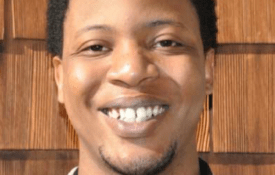-
The Nocturnals
... According to most psychologists, humans are inherently social creatures; contact with others isn’t just a want—it’s a need. Deprived of it, people’s physical and mental health tends to decline. But the nocturnal people I spoke with feel they don’t need much interaction at all. “I’ve tried to hold down day jobs, but I couldn’t handle waking up early, rushing to work, and most of all just … being around people all the time,” Chris Hengen, a 26-year-old nighttime security guard living in Spokane Valley, Washington, told me via email.
-

2022 Spence Award Mini Episode: Jason Okonofua and the Power of Empathy
Under the Cortex talks with 2022 Spence Award winner Jason Okonofua.
-
Take a Career Break, but Stay In the Game
You got burned out. Your kids needed you. You became a crypto millionaire overnight. Whatever the reason—congrats. Welcome to your career break, length TBD. Time off by choice can be wonderful if you can swing it, a chance to recalibrate your priorities and detox from the stress of the working world. It can also be a kind of limbo. How to keep your edge without getting sucked back into corporate overwhelm? How do you know when it’s the right moment to job hunt again? And what comes next, anyway?
-

New Research From Clinical Psychological Science
A sample of research on COVID-19, stress, maternal health, anxiety, PTSD, psychopathology and diagnosis, alcohol’s effects, and verbal hallucinations.
-
The Questionable Compatibility of Introverts and Extroverts
Swiss psychiatrist Carl Jung popularized the terms introvert and extrovert in the 1900s; but a century later, his postulations about personality types have become so warped by popular culture that the reputations of introverts everywhere are at stake. Jung originally sought to understand how people derive and orient their energies. That is to say, according to Jung, extroverts draw their energy from those around them while introverts pull it from within themselves. He suggested that these personality traits are different — but equally healthy. One isn’t better than the other.
-

Safer Social Environments Could Help Prevent Campus Sexual Assault
This framework highlights how situational configurations can interact with mental processes to create the conditions that enable or discourage sexual assault on college campuses.

